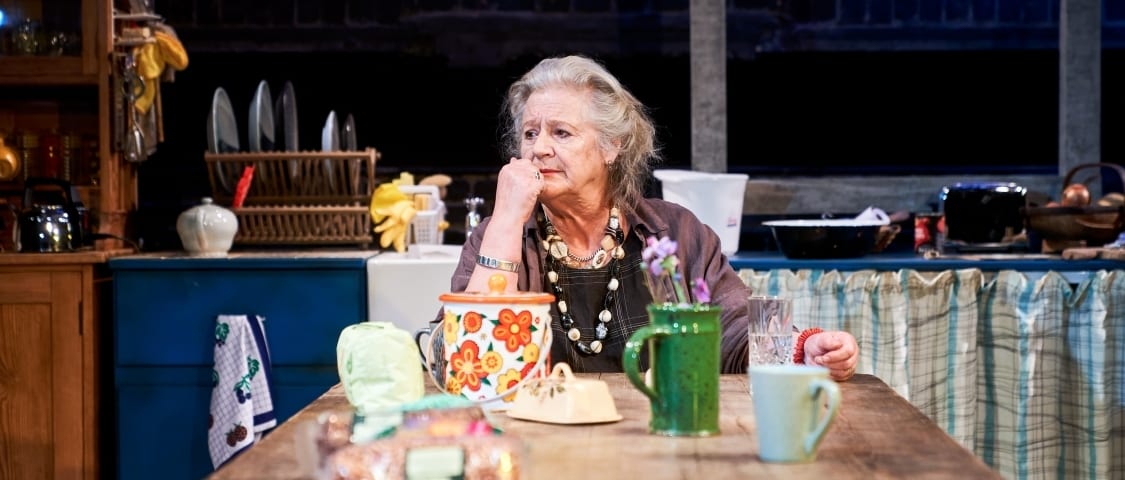The Arcola describes this new play by Jack Shepherd as a “tragicomedy about life, money and art”. Shepherd has had a long and productive association with this splendid East London studio theatre and The Cutting Edge is perfectly tailored for the nature of the performance space – five actors, a simple setting and the seats close enough to the action to allow for naturalistic acting to communicate directly with the audience. Combining this with group of top flight actors, what we have is an intriguing evening of thought-provoking theatre.
Chris has left a successful career as an art critic in London and, with his supportive wife Anna, is trying to make a go of a rural small holding. The struggle for self-sufficiency is proving to be difficult and the strain is beginning to show. They seem to have few links with the neighbours other than Peter, a lonely widower who is always hanging around the cottage. Into this less-than-idyllic rural setting bursts Elvira, who claims to have been a regular visitor to the cottage in earlier ‘wilder’ days. It emerges that the cottage used to function as a weekend retreat for a group of wild living, free loving artists, although quite why Elvira has decided to descend on the place now never quite emerges. She demands alcohol and refuses food. She is eventually joined by her ‘driver’, Zak, an elderly biker who used to be a rock musician. The conflicts between the members of this ill-assorted group fuel the main part of the play.
There are really two themes. The first is the struggle that some people experience when trying to leave ‘the rat race’ and to create a new green life closer to nature. The second is about the intrinsic value of art and whether some of the more recent movements have been about money or beauty. The first theme is a constant undercurrent in the drama as it emerges just how hard the couple has found it to survive on the small-holding. The second theme climaxes during a bad-tempered debate between Zak, Peter and Chris when the biker lays into modern art accusing it of wilfully ignoring the need to communicate more widely than to a small coterie of admirers.
Maggie Steed steals the show with a fine comic turn as Elvira – her reminiscences of the wild parties of her youth, and her mischievous determination to empty the couple’s wine cellar inject the bohemian fizz into proceedings. That this may be a last fling before the curtain falls on her follies is hinted at but not overdone. Her biker friend, Zak, played with relish and a hint of menace by Michael Feast, is a somewhat paradoxical figure – by turns affable and confrontational – but he (like Elvira) introduces a bit of grit into the oyster of Chris and Anna’s green idyll. David Sturzaker as Chris is entirely believable as the talented writer who has lost all respect for his own work as he sees money consume the artists he was writing about. Anna and Peter are less well developed characters but Jasmine Hyde and James Clyde both bring life to their roles.
By the end of the play I had certainly appreciated the humour of the situation created by Elvira’s visit but none of the hints of tragedy had emerged fully, although the sound of the ambulance siren as the play ended was ominous. And the truce between Chris and Anna about the hard life they had chosen seemed to be very temporary. This is a play that doesn’t quite deliver the promises that it offers in the early scenes and finishes without resolving some of the conflicts it introduces. But it’s well worth a visit to Dalston and a good sign of The Arcola’s rude good health.

